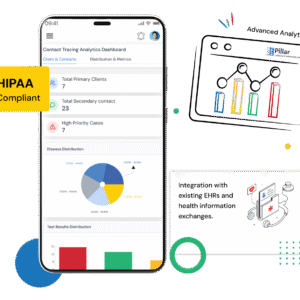In the age of rapid digital advancement, the demand for secure and reliable telecom equipment has grown significantly. To ensure the safety, quality, and interoperability of telecom devices used in India, the Telecommunication Engineering Center (TEC) mandates a crucial approval known as TEC Certification. Whether you’re a manufacturer, importer, or distributor of telecom products, obtaining TEC certification is essential for legal compliance and market access in India.
This article provides a comprehensive overview of TEC certification, including its importance, applicable products, certification process, documents required, and benefits.
What is TEC Certification?
TEC Certification is an approval process conducted by the Telecommunication Engineering Center (TEC), which is a technical arm of the Department of Telecommunications (DoT), Ministry of Communications, Government of India. Under the Mandatory Testing and Certification of Telecom Equipment (MTCTE) scheme, all telecom and ICT (Information and Communication Technology) equipment must be tested and certified before they can be sold or used in the Indian market.
The primary objective of TEC certification is to:
- Ensure telecom equipment meets technical standards
- Safeguard users from substandard or unsafe products
- Prevent network disruptions
- Promote indigenous manufacturing by standardizing quality benchmarks
Why is TEC Certification Important?
Here are some key reasons why TEC Certification is important:
- Legal Requirement: As per Indian telecom regulations, selling or using non-certified telecom equipment is prohibited.
- Market Access: TEC certification is mandatory to import or sell telecom equipment in India.
- Consumer Safety: It ensures that devices are safe, reliable, and function as intended within communication networks.
- Interoperability: Certified devices are tested for seamless functioning with Indian telecom infrastructure.
- Avoid Penalties: Non-compliance with TEC regulations can result in legal actions, fines, and product seizures.
Categories of Equipment Covered Under TEC Certification
The TEC has classified telecom and ICT equipment into different product families and phases under the MTCTE scheme. Some common product categories include:
- Mobile handsets and smartphones
- Modems and routers
- Wi-Fi access points
- Smart watches with SIM
- Optical fiber equipment
- Transmission terminal equipment
- Servers and storage devices
- IoT gateways with communication capabilities
Note: The list of products subject to TEC certification is regularly updated. Manufacturers and importers should stay informed about new additions.
Types of TEC Certification Schemes
The MTCTE framework offers two types of certification:
1. General Certification Scheme (GCS):
Under GCS, the product must be tested in a TEC-designated Conformity Assessment Body (CAB), and results must be submitted for evaluation.
2. Simplified Certification Scheme (SCS):
SCS allows manufacturers to self-test and submit compliance documents without submitting samples to a designated lab, provided the product is low-risk and falls under specific criteria.
TEC Certification Process: Step-by-Step
The TEC certification process involves several steps, from product testing to certificate issuance. Here’s a detailed breakdown:
Step 1: Register on MTCTE Portal
The applicant must first create an account on the TEC MTCTE Portal, which is the official platform for applying and tracking certification.
Step 2: Identify Product Category and Scheme
Determine whether the product falls under GCS or SCS. This depends on product risk, usage, and designated phase.
Step 3: Appoint Authorized Indian Representative (AIR)
Foreign manufacturers must appoint an Authorized Indian Representative (AIR) to represent them in India during the certification process.
Step 4: Testing of Equipment
Products must be tested at a TEC-designated laboratory for various parameters such as:
- Safety
- EMI/EMC compliance
- Technical performance
- Security standards
Step 5: Submit Application and Documents
Once test results are available, the applicant submits the online application along with required documents and pays the application fee.
Step 6: Evaluation and Grant of Certificate
TEC reviews the application, test results, and documents. If everything is in order, TEC issues a Certificate of Conformity.
Documents Required for TEC Certification
Here’s a list of commonly required documents:
- Business registration certificate (of the manufacturer)
- Technical specifications and product details
- Test reports from TEC-designated labs
- User manual and circuit diagrams
- ISO 9001 certificate or quality management proof
- Declaration of Conformity (DoC)
- Authorization letter (for AIR, if applicable)
- Photograph of the product
- Undertaking of responsibility
Note: The exact document requirements may vary depending on the product and certification scheme.
Validity and Renewal
- TEC certificates are typically valid for 5 years.
- Renewal must be applied before the expiry date by updating test reports and documentation.
- Any change in the product design or specifications requires re-testing and re-certification.
Benefits of TEC Certification
- Legal Compliance: Helps manufacturers meet Indian telecom regulatory requirements.
- Improved Market Trust: Certified products gain trust from telecom operators, distributors, and consumers.
- Smooth Import Clearance: TEC certification is required for customs clearance of telecom devices.
- Competitive Edge: Demonstrates a brand’s commitment to quality and safety.
- Enhanced Network Safety: Ensures that devices do not interfere with India’s telecom infrastructure.
Common Challenges in the TEC Certification Process
- Delays in testing due to limited availability of designated labs
- Lack of clarity in updated product lists and phased implementation
- Technical documentation errors
- Incomplete understanding of test parameters
- Long approval timelines, especially for GCS products
To avoid these issues, it is advisable to consult an experienced TEC certification consultant or compliance expert.
Conclusion
TEC Certification is a mandatory compliance requirement for all telecom and ICT equipment manufacturers looking to sell their products in India. It ensures that equipment is safe, secure, and compatible with Indian networks. By obtaining TEC certification, businesses not only comply with legal mandates but also build a strong reputation in a competitive telecom market.
For manufacturers—especially those exporting to India—TEC certification is a crucial step that should be planned early in the product launch cycle. With the help of professional guidance and a proper understanding of the MTCTE process, companies can streamline their certification journey and ensure successful market entry.



